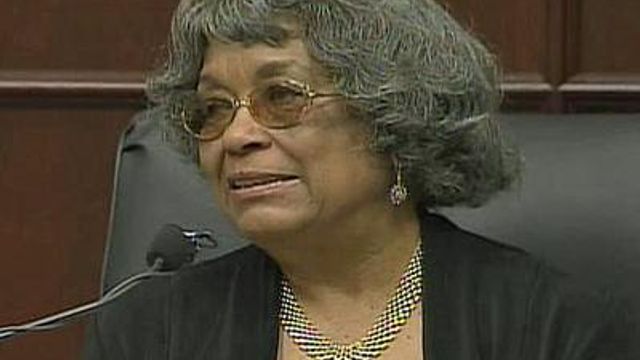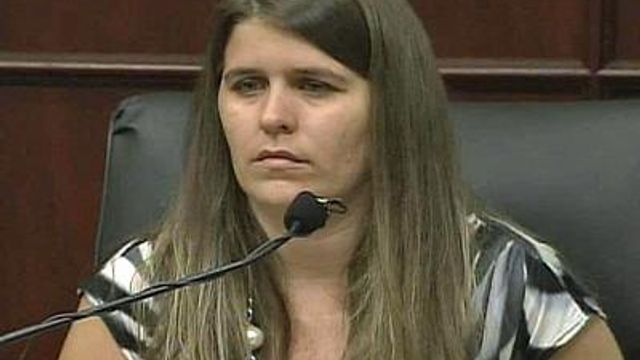'Light went out' for murder victim's family
Emotional testimony Friday brought some jurors to tears as they heard from family members of three of Samuel Cooper's five murder victims.
Posted — UpdatedHer testimony brought many in the courtroom to tears, including jurors, who found Cooper guilty this week on five counts of first-degree murder. They must next decide whether he should spend the rest of his life in prison or get the death penalty.
Cooper sat with his head bowed during most of Friday's testimony and showed no emotion as victims' family members talked about their losses. Defense attorneys will begin presenting evidence Monday that he shouldn't be put to death.
Timothy Barnwell was the answer to years of prayer, his mother said, and when he came along, the trio became like the Three Musketeers.
"We were a close family," Phyllis Barnwell said. "We did almost everything together."
Long after he moved out from their home, the 34-year-old saw his parents several times a week. Phyllis Barnwell said she often cooked enough dinner so that he wouldn't have to for himself.
On April 27, 2007, she was at home preparing a roast, part of which she was planning to give to her son, and singing when the telephone rang.
"At first, I thought something had happened to David," Barnwell recalled."They said 'No' right away. Then, I knew something was wrong with Tim."
By that time, her husband had come home crying.
"I screamed, 'Where's Timmy?'" Phyllis Barnwell. "He said, 'He's gone.'"
Prosecutors said Cooper had handcuffed, hog-tied and duct-taped Timothy Barnwell and then ransacked his second-floor North Raleigh apartment looking for drugs and money.
When Barnwell managed to jump over the balcony in an attempt to escape, Cooper shot him five times.
Police arrested Cooper seven months later on a bank robbery charge and subsequently linked him to Barnwell's death, as well as to the shooting deaths of Ossama "Sam" Haj-Hussein, 43, on May 12, 2006, and Tariq Hussain, 52, on Oct. 14, 2007.
Cooper was also convicted of killing LeRoy Jernigan, 41, and Ricky High, 48.
"Our thought process was maybe he fell at work," Chasity Jernigan testified.
He owned a cleaning service and had been working at the Circus Family Restaurant on Wake Forest Road when Cooper shot and killed him.
LeRoy Jernigan, who loved to fish and did ministry work with his church, left behind two sons and a wife. The two would have celebrated their 24th wedding anniversary this week.
Chasity Jernigan said she had seen him the night before his death. The family was planning a fish fry the next day with the fish he had recently caught with his brother.
Cooper shot High multiple times near Saint Augustine's College in Raleigh in the early hours of Oct. 12, 2007. Homeless at the time, High was an unintended target in a dispute between Cooper and a group of gang members, prosecutors said.
Biologically, Reed and High were cousins, she said, but her mother raised him when his died. She considered him her brother.
He wasn't always on the street, Reed said. He graduated from Zebulon High School and drove trucks for a local waste-management company for 15 to 20 years. High's life began to spiral when he lost his job about seven years earlier.
Reed said she and her family tried to take him in and help him, but he refused.
"Ricky chose to live on the streets. He didn't want to be a burden to anybody," she said.
They stayed in close contact though.
"He's not at our family reunions anymore. He's got two nephews he never gets to see anymore," Reed said. "It's just been hard on everybody. We don't get to celebrate anything with him, anymore."
• Credits
Copyright 2024 by Capitol Broadcasting Company. All rights reserved. This material may not be published, broadcast, rewritten or redistributed.






